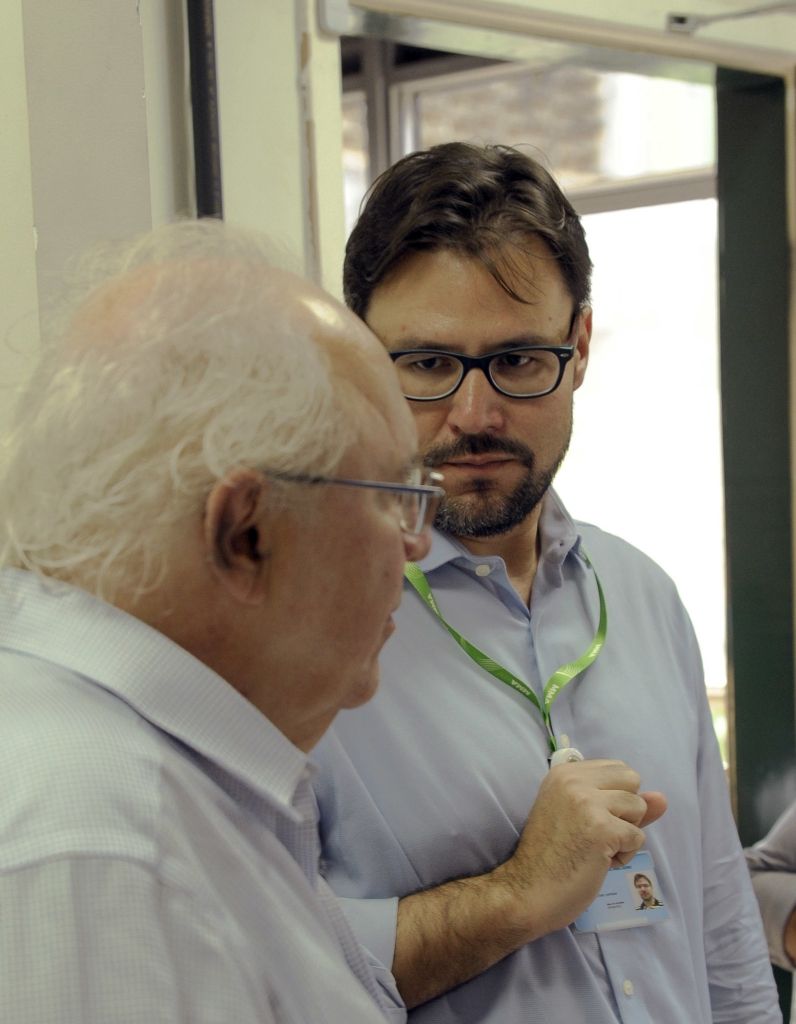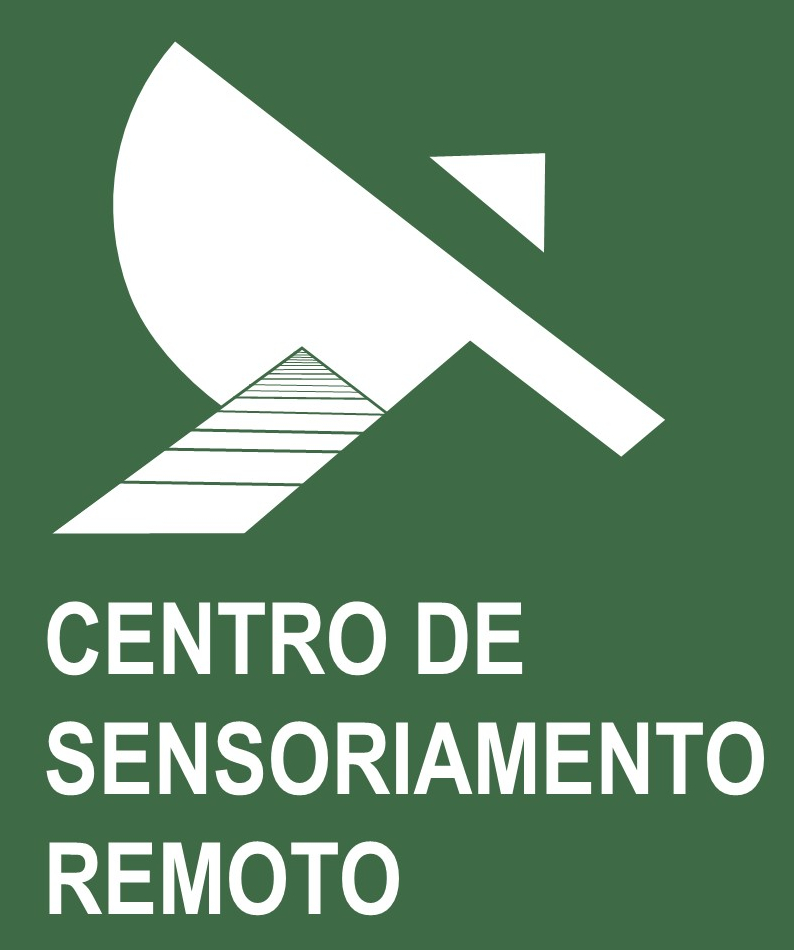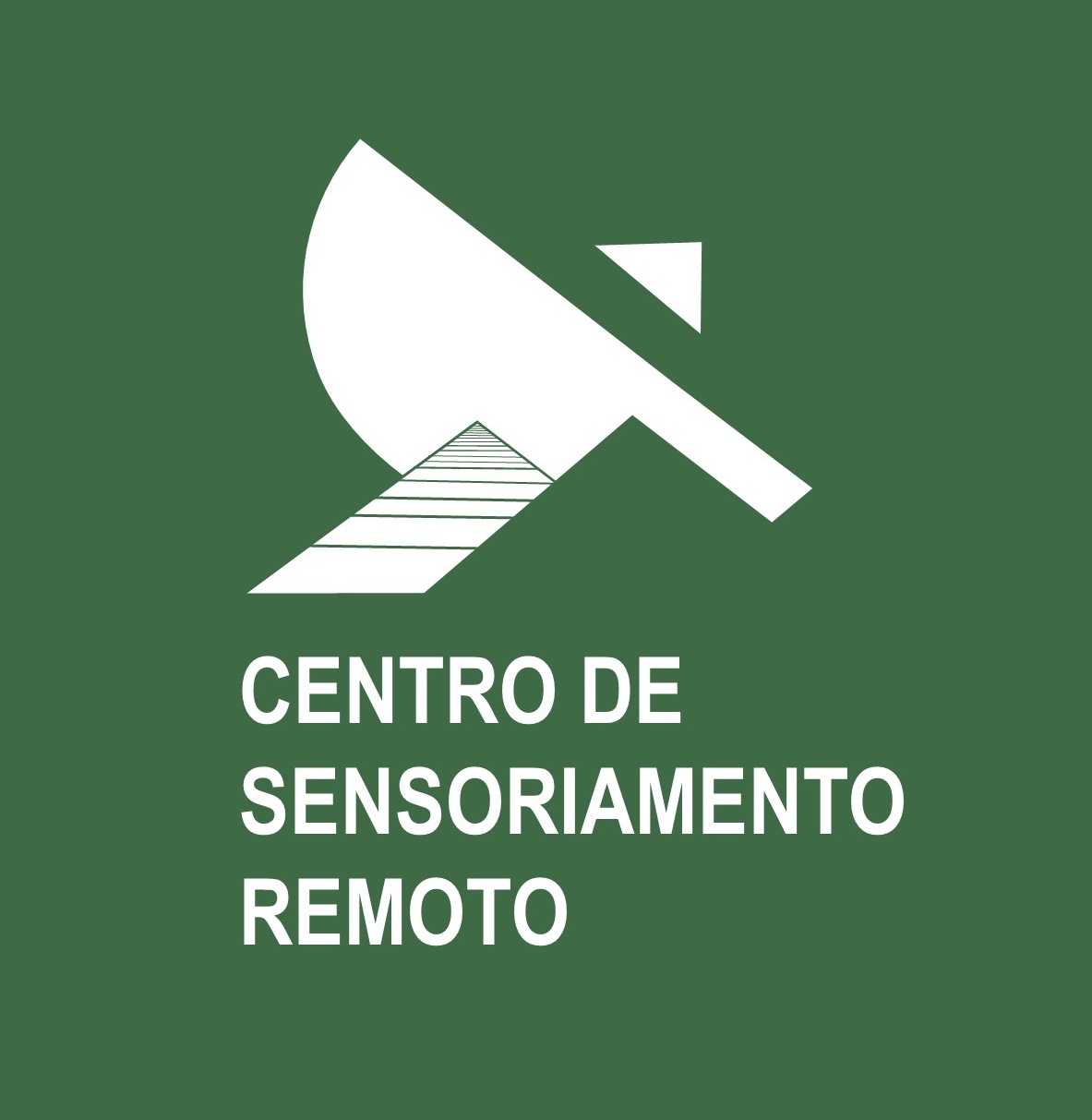 Francisco Gaetani and Raoni Rajão. Photo: Jebs Lima/UFMG
Francisco Gaetani and Raoni Rajão. Photo: Jebs Lima/UFMG
On Friday, February 21, the Federal University of Minas Gerais received a visit from Francisco Gaetani, Extraordinary Secretary for State Transformation of the Ministry of Management and Innovation in Public Services (MGI), Henrique Dolabella, Director of the Rural Environmental Registry, Leonardo Brasil, manager of Dataprev, and two other representatives of the company. They joined the general director of the State Forestry Institute, Breno Esteves Lasmar, members of the technical team of the State Secretariat for the Environment and Sustainable Development (SEMAD), and Secretary Marília Melo in a meeting to present and discuss technologies developed by UFMG that can help the Ministry improve the Rural Environmental Registry System (Sicar).
The visitors were welcomed by the Rector, Prof. Sandra Goulart, and the Pro-Rector of Research of UFMG, Prof. Fernando Reis, and then left for a visit to the Remote Sensing Center (CSR), an institutional research laboratory located at the Institute of Geosciences. After the visit, together with the coordinator of the CSR and the Technological Center for Environmental Analysis and Modeling (CT Modelagem), Professor Marcelo Costa, Professors Raoni Rajão, Britaldo Soares Filho and the teams from the laboratory and CT, they met at the School of Engineering for presentations on the SeloVerde, CAR 2.0 and Dinamica EGO technologies, a free software developed by the University.
Through the presentations, the researchers demonstrated the level of maturity of the technologies and how they could be beneficial for improving the Federal Sicar. Currently, CT Modelagem and the CSR are already supporting six states in the introduction of new CAR analysis technologies in their state systems, including Minas Gerais. The state was the second to implement the SeloVerde platform, in 2023, which provides estimates of agricultural production, environmental compliance and traceability by property registered in the CAR, and the CAR 2.0 platform, in 2024, which performs automated environmental diagnostics by property.
The ability to analyze data from Minas Gerais is an important demonstration of the University’s technical and scientific potential. The state’s Sicar database is the second largest in the country, behind only Bahia, with over 1 million properties. The computational models used in the process are developed and run within the Dinamica EGO software together with open source solutions such as Python and PostGIS.
“The analysis of CAR and generation of maps from high-resolution images bring technological challenges that are at the forefront of scientific knowledge in the areas of artificial intelligence and large-scale spatial modeling. We hope that this partnership will contribute to the improvement of the federal Sicar through a technology transfer and training partnership with Dataprev, contributing to the implementation of the Forest Code throughout the country,” says Raoni Rajão, professor in the Department of Production Engineering. The federal government system, in addition to being used by states that do not have their own Sicar, aggregates data from all state systems.
Secretary Francisco Gaetani emphasized that “implementing the Forest Code is an agenda that concerns all sectors, it is an agenda for the entire country. Therefore, we need to resort to the best we have. The MGI is structuring Sicar as a digital public infrastructure so that it can serve various purposes and be capable of incorporating the best available technologies. This is the only possible path.”

